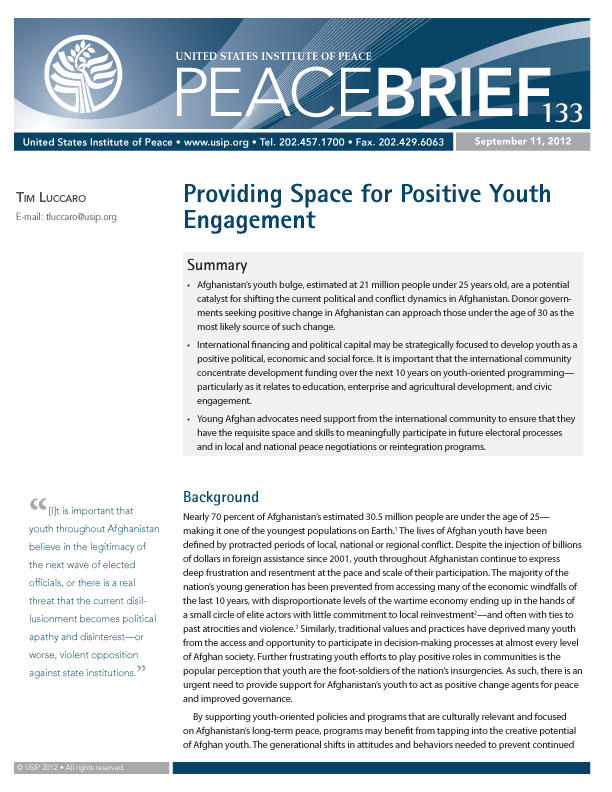Providing Space for Positive Youth Engagement
Tim Luccaro, USIP’s program officer in Kabul, discusses USIP’s work with Afghan youth volunteers to build greater community awareness of civic and legal rights, highlighting the need for greater recognition of Afghan youth’s role and participation in political and peace processes in Afghanistan.

Summary
- Afghanistan’s youth bulge, estimated at 21 million people under 25 years old, are a potential catalyst for shifting the current political and conflict dynamics in Afghanistan. Donor governments seeking positive change in Afghanistan can approach those under the age of 30 as the most likely source of such change.
- International financing and political capital may be strategically focused to develop youth as a positive political, economic and social force. It is important that the international community concentrate development funding over the next 10 years on youth-oriented programming— particularly as it relates to education, enterprise and agricultural development, and civic engagement.
- Young Afghan advocates need support from the international community to ensure that they have the requisite space and skills to meaningfully participate in future electoral processes and in local and national peace negotiations or reintegration programs.
About this Brief
Tim Luccaro is USIP’s program officer in Kabul, Afghanistan where he has worked on justice-related issues since 2010. The Peace Brief discusses USIP’s work with Afghan youth volunteers to build greater community awareness of civic and legal rights. The author highlights the need for greater recognition of Afghan youth’s role and participation in political and peace processes in Afghanistan.



